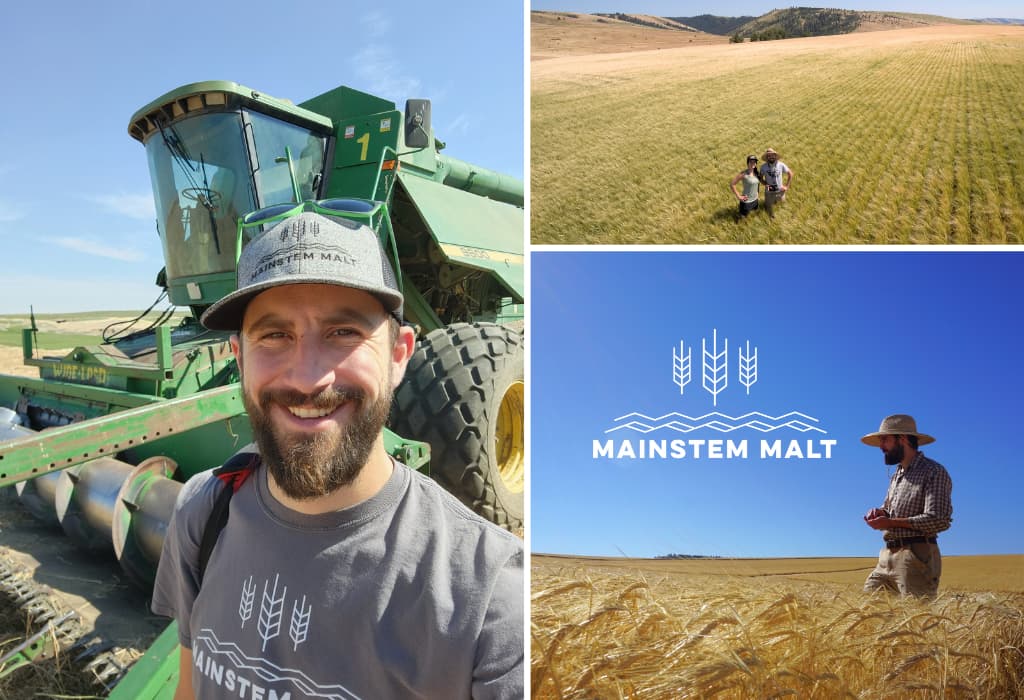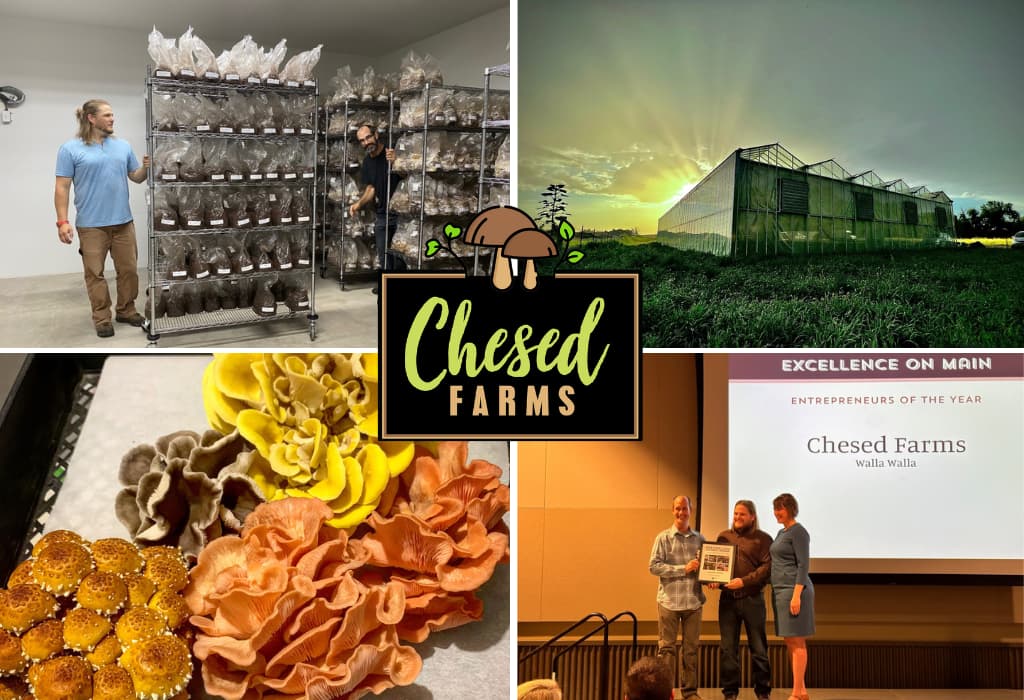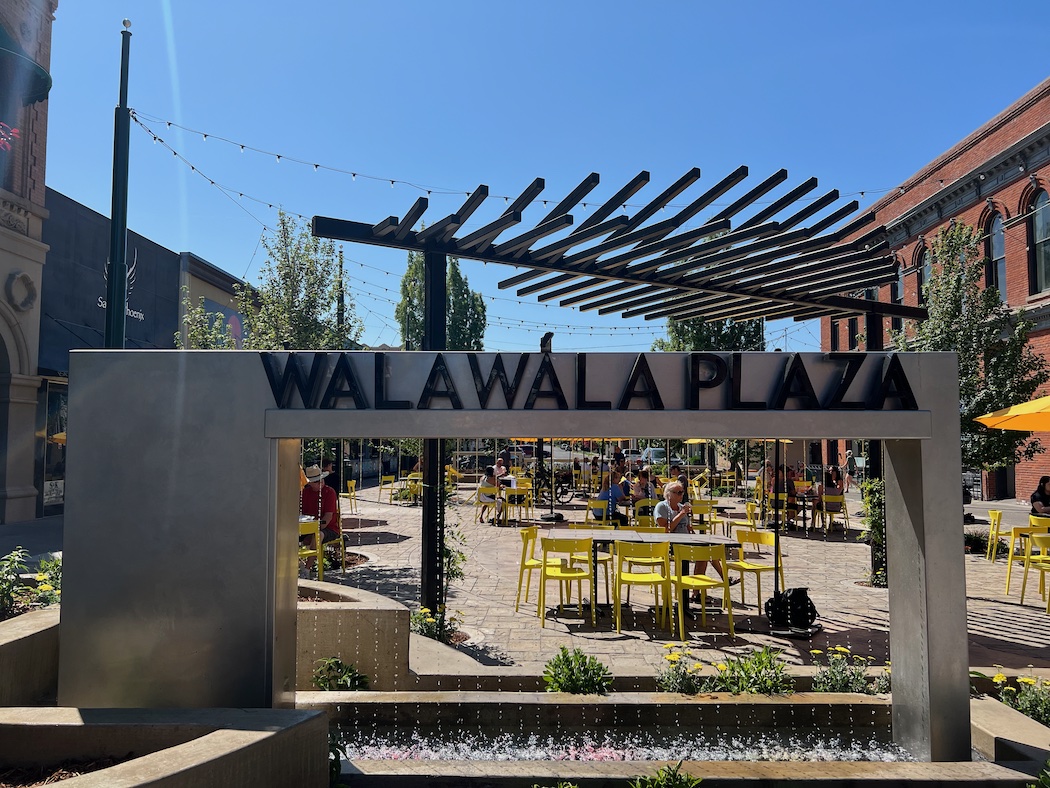
Mainstem Malt - Vision Closer Than Ever
Phil Neumann’s dream of opening a craft malthouse in the center of a grain paradise has been more than a decade in the making.
Conceptualized in 2014, the project has been slated for multiple locations over the years but set back by financing challenges. In pursuit of funding and a location, Neumann has succeeded in building a grain-to-glass supply chain that connects the malted grains of area farmers with craft brewers and distillers, all while fueling his vision.
The malthouse concept is now closer than ever. In 2024, the Port of Columbia was awarded a $5 million grant and loan package from the state’s Community Economic Revitalization Board to build a 12,000-square-foot facility that would be leased to Mainstem. Meanwhile, Mainstem was awarded nearly $500,000 from the state Department of Agriculture, which will help with purchase of the malting system equipment.
“It’s never been this promising of a position,” Neumann says. “I love being in this space where we’re figuring out how to do it right.”
The partnership between the private business and public entity fills a need for both: It helps Mainstem Malt with access to grant funding and an established public partner while fulfilling the Port’s mission to support business expansion in the rural market.
“Banks don’t loan to noncash-flowing businesses,” he says. “They don’t land on a dream or even a fantastic idea and plan — just cash flow and assets.”
That was among the first lessons in 2015, when he left his full-time work in watershed management — “probably prematurely,” he says — and jumped into entrepreneurship.
Initially, the project moved forward with family investment. Neumann immediately joined the Craft Malsters Guild, a global support network for which he now serves as a board member. He began his first grain contracting in 2016 with a field of barley plantings in Athena. Plans to build a malthouse focused on Milton-Freewater, where a private investor had agreed to contribute contingent on that location. But financing from an alternative lender fell through.
Neumann took a position working alfalfa seed harvest to reset. From the seat of a combine and with strong cell service, he spent two weeks putting the business back together with a new idea. If he could get two or three malthouses on board, he could process the grains and take them to market.
“Adding value to grains or adding value to family farms was the root of it,” he says. Malt is the No. 1 ingredient besides water in craft beer and a lot of spirits.
In 2017, he started selling the malt. He pulled in $37,000 that year, driving around and delivering the product to anyone who would buy it. He found a Seattle distiller willing to order in volume. A second came in 2018. That year, he was up to $350,000 in revenue.
“We weren’t able to build a malthouse, but we were able to complete the supply chain,” he says. “It’s not the vision, but we made it work.”
A detour to Alaska that year led to one of the most significant relationships in the process. Neumann and his wife, Alyssa, made a trip to tour Amalga Distillery in Juneau, after connecting with the owner on social media. While there, he presented a memo on how he would build out an Alaska malt supply chain using Alaska barley. He met with farmers, plant breeders, brewers, distillers and more. Among them, was the owner of Alaska’s largest distillery who divides time in Seattle as an oncologist. The man became a private investor, contributing $100,000 immediately.
“On paper, it would look irresponsible to go spend two weeks in Alaska when we didn’t have our stuff together at home. But we found our biggest investor there,” Neumann says. “It was a cool lesson: The side trips are really important. Budget and plan to let yourself go on adventures around the business.”
That same year, he signed a lease with the Port of Walla Walla for development of the property. But when funding didn’t come together in time, it ultimately fell through. Then COVID-19 followed. A purchase of equipment in China fell through.
Neumann has persevered. In 2021, Mainstem launched an equity crowdfund campaign that raised another $160,000 from more than 230 people. He then approached the Port of Columbia.
“We pitched them: We need help building a facility. We can’t do this on our own. What if we look at a malthouse as an anchor business for a larger buildout of Blue Mountain Station into an artist-ingrained hub or cluster?” he proposed.
Neumann says working with the Port on public funding lowers the project’s risk profile, which strengthens the case for lender and equity investors.
Estimated at a cost of about $16 million between capital expenditures and working capital, the two have secured about $7 million and with resources to get the project through permitted plans, contractor selection and a finalized budget. By groundbreaking, expected mid-2026, the balance will be needed. Neumann expects that to be through additional grants, plus debt and equity financing.
Engaged with an alternative lender focused on agricultural projects, Neumann says the biggest remaining variable in the timeline for a mid-2027 opening is equity investors.
Several lessons have come from the journey, he says. Among them is the question of whether starting smaller and building with demand would have been a faster way to build a malthouse. More than that, he’s shifted his outlook on the difficulties of entrepreneurship without cashflow.
“I think a lot about my arc through this and all the points at which I have thought about calling it,” he says. “I think about the attrition rate for the entrepreneurial population in general. A certain amount of people could do a good job and make something great if they were just supported a bit more.”




